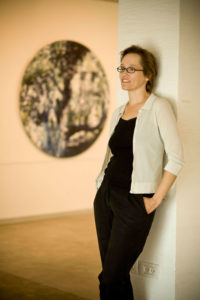
Dr. Shelly Cohen explores the Israeli space. The Local series of exhibitions was curated by Cohen and various associates in the Architect’s House gallery, and was displayed there for over a decade. It was one of the main instigators of a new Israeli discourse that critiqued the often neglected social and political aspects of Israeli architecture. Her book “Living Forms: Architecture and Society in Israel”, co-edited with Arch. Tula Amir, combines social and architectural theory with everyday living reality. It has become a popular source for citations and a primary reader in many schools of architecture and design. Similarly, both the edited “Safe Haven: Urban Civil Defense”, and the exhibition at the Genia Schreiber university gallery, have explored how security considerations affect planning procedures, and how residential secure space (Mamad) requirements affect the everyday lives of Israeli residents. Cohen’s research is regularly published across various platforms: in over 20 themed architecture exhibitions, in edited books that became basic readers, in academic articles, and in books that affect the public agenda. In addition, Cohen develops unique formats for teaching and research.
Based on the “ethics of care,” a feminist moral conception, which places a person’s relationship to another at the heart of ethical debate, Cohen’s book “Architecture and Care” examines the ethical motives of social initiatives in architecture. Because we do not tend to describe the field of architecture in terms of concern, the book asks the characteristics of the concept of care developed by theorist Joan Tronto from the fields of gender and political science to the field of architecture.
Cohen’s PhD dissertation explores the connection between ethical, social, and aesthetic theories. It focuses on a relatively new trend in architecture: large numbers of architects are now becoming increasingly involved in social issues and projects. These architects join municipal or civil initiatives to plan and build projects for Israel’s marginalized groups. Their aim is to meet the various planning needs sorely neglected by authorities and the marketplace. It is a recent and notable development in Israel and the West. Her post-doctoral research (Technion IIT) explores the shared residential architecture of seniors living with caretakers.
Design: Megama/Rebecca Sternberg
Programming: Sotiris Valogiannis